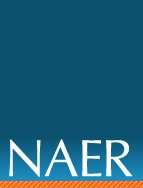
Social Learning Analytics in Higher Education. An experience at the Primary Education stage
article
Jose Daz-Lzaro, Isabel Solano Fernndez, Mara Snchez-Vera
NAERJ Volume 6, Number 2, ISSN 2254-7339 Publisher: University of Alicante
Abstract
The concept of Learning Analytics, as we understand it today, is relatively new but the practice of evaluating user behavior is not innovative. For years, technological development, along with other educational aspects, have encouraged, developed and facilitated this practice as a way of providing a personalized quality experience to students. The main goal of this study, carried out in the Primary Education Degree of the University of Murcia, was to research, from the perspective of Social Learning Analytics, how students learn and collaborate in online environments, specifically through their use of social media. With the idea of improving and optimizing future teaching experiences, a pilot study was conducted using weblog, Twitter and Facebook to work with different topics on the subject. The method used in this research was a participant observation and the analysis performed was both quantitative, based mainly on the data gathered from the learning analytics, and qualitative (analyzing students\u2019 content from comments). Results show that there was greater interaction on Facebook than weblogs, where students interacted to deal with aspects related to the learning process and the topic of the subject. This exchange of information grew during the development of the experience. In addition, learning analytics shows that there is a relationship between group members and their interaction and behavior in networks.
Citation
Daz-Lzaro, J., Solano Fernndez, I. & Snchez-Vera, M. (2017). Social Learning Analytics in Higher Education. An experience at the Primary Education stage. Journal of New Approaches in Educational Research (NAER Journal), 6(2), 119-126. University of Alicante. Retrieved August 5, 2024 from https://www.learntechlib.org/p/180110/.
© 2017 University of Alicante
Keywords
References
View References & Citations Map- Ato, M., López, J.J., & Benavente, A. (2013). Un sistema de clasificación de los diseños de investigación en psicología. Anales de psicología, 29 (3), 1038-1059.
- Clow, D. (2013). An overview of learning analytics. Teaching in Higher Education, 18(6) 683–695. Doi:10.1080/13562517.2013.827653
- Douglas, K.A., Bermel, P., Monzurul Alam, M.D., & Madhavan, K. (2016). Big data characterization of learner behaviour in a high technical MOOC engineering Course. Journal of Learning Analytics, 3(3), 170-192.
- Drachsler, H. (2011). Turning Learning into Numbers-A Learning Analytics Framework. Open University of the Netherlands. Retrieved from http://www.slideshare.net/Drachsler/ Turning-learning-into-numbers-a-learning-analytics-framework
- Ferguson, R., & Buckingham, S. (2012). Social Learning Analytics: Five Approaches. In 2nd International Conference on Learning Analytics& Knowledge (pp. 23-33). Vancouver, British Columbia, Canada.
- Hernández, Á., González, I., Jiménez, A.I., & Chaparro, J. (2016). Visualizations of Online Course Interactions for Social Network Learning Analytics. International Journal of Emerging Technologies in Learning (iJET), 11(07), 6-15.
- Henríquez, P. (2001). La aplicación didáctica de las TIC en la formación del siglo XXI (Unpublished doctoral dissertation). Universidad Rovira i Virgili, Tarragona.
- Hernández, R., Fernández, C., & Baptista, L. (2010). Metodología de la investigación. México: McGrawHill.
- Johnson, L., Adams Becker, S., Cummins, M., Estrada, V., Freeman, A., & Ludgate, H. (2013). NMC Horizon Report: 2013 Higher Education Edition. Austin, Texas: The New Media Consortium. Retrieved from http://www.nmc.org/Pdf/2013-horizonreport-HE.pdf
- Leon, A., Corona, A., Yedra, R., Cruces, E., & Gómez, J. (2015). Social Learning Analytics en grupos de Facebook, para la identificación de estudiantes de bajo
These references have been extracted automatically and may have some errors. Signed in users can suggest corrections to these mistakes.
Suggest Corrections to References